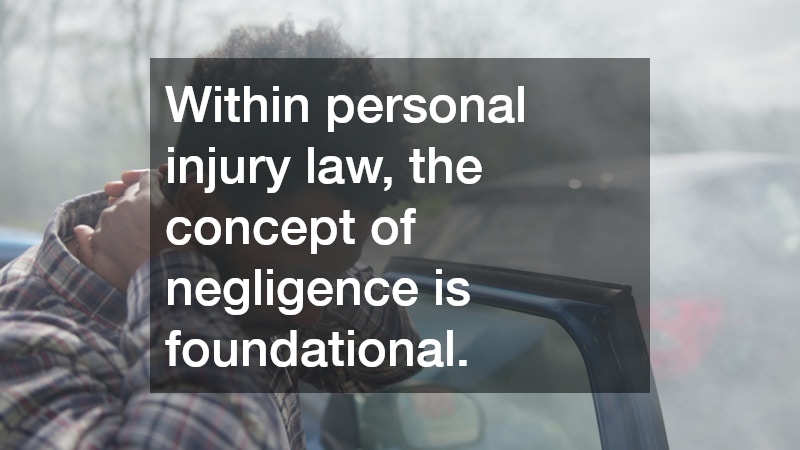Personal injury law is a legal framework designed to protect individuals who have been harmed due to another party’s negligence or intentional acts. It covers a wide array of incidents, ranging from car accidents to slip and falls, as well as medical malpractice and product liability. The main objective of personal injury law is to ensure that the injured party receives adequate compensation to cover medical expenses, lost wages, and other damages incurred.
Within personal injury law, the concept of negligence is foundational. Negligence occurs when a party fails to act with the level of care that a reasonable person would in similar circumstances. For example, a driver who runs a red light and causes an accident may be found negligent, thereby responsible for any injuries that result.
To pursue a personal injury claim, the plaintiff must establish that the defendant had a duty of care, breached that duty, and caused damages as a direct result. This can involve gathering evidence, such as medical records and eyewitness testimony, to build a strong case. Personal injury law aims to restore the injured party to the position they would have been in had the incident not occurred, through financial compensation.
The Process of a Personal Injury Claim
The process of filing a personal injury claim can be complex and involves several critical steps. Initially, the plaintiff needs to consult with an attorney experienced in personal injury law to evaluate the merits of the case. During this consultation, the attorney will review evidence, assess potential damages, and discuss the likelihood of a successful outcome.
Once a claim is initiated, the case enters the discovery phase, where both parties exchange information and gather evidence. This process might include depositions, written interrogatories, and requests for documents, all aimed at building a comprehensive understanding of the events leading to the injury. Discovery plays a crucial role in uncovering facts that could substantiate claims or defenses.
Often, personal injury cases are resolved through negotiation and settlement, avoiding a lengthy court trial. However, if a settlement cannot be reached, the case may proceed to litigation, where it is presented before a judge or jury. Through trial, each party presents evidence, and ultimately, a decision is rendered regarding liability and damages.
Types of Compensation in Personal Injury Cases
Compensation in personal injury law is primarily categorized into economic and non-economic damages. Economic damages refer to tangible losses, such as medical expenses, rehabilitation costs, and lost wages. Keeping detailed records of all related expenses is crucial in substantiating a claim for economic damages.
Non-economic damages, on the other hand, encompass intangible losses, including pain and suffering, emotional distress, and loss of enjoyment of life. These damages can be more challenging to quantify, often relying on the severity of the injury and its impact on the victim’s quality of life. Juries or judges may consider the evidence of emotional and physical hardships when determining appropriate non-economic compensation.
In rare cases, punitive damages may also be awarded in personal injury law. These damages are intended to punish particularly egregious conduct and deter similar behavior in the future. Though less common, punitive damages highlight the law’s role in promoting accountability and justice.
The Importance of Legal Representation
Retaining a competent personal injury attorney is crucial for navigating the complexities of personal injury law. Experienced attorneys not only understand the intricacies of legal proceedings but also have the expertise to negotiate effectively with insurance companies. They advocate on behalf of their clients to ensure fair compensation for incurred damages.
Moreover, attorneys have access to resources and specialists who can provide expert testimony, strengthening the overall case. They assist in calculating comprehensive compensation packages that fully account for both current and future needs. Having skilled legal representation can significantly impact the outcome of a personal injury claim.
Beyond legal expertise, a personal injury attorney also offers emotional support and guidance throughout a challenging process. They keep clients informed, manage paperwork, and navigate obstacles that may arise. The attorney-client relationship is built on trust and clear communication, contributing to a more manageable and effective claim process.
